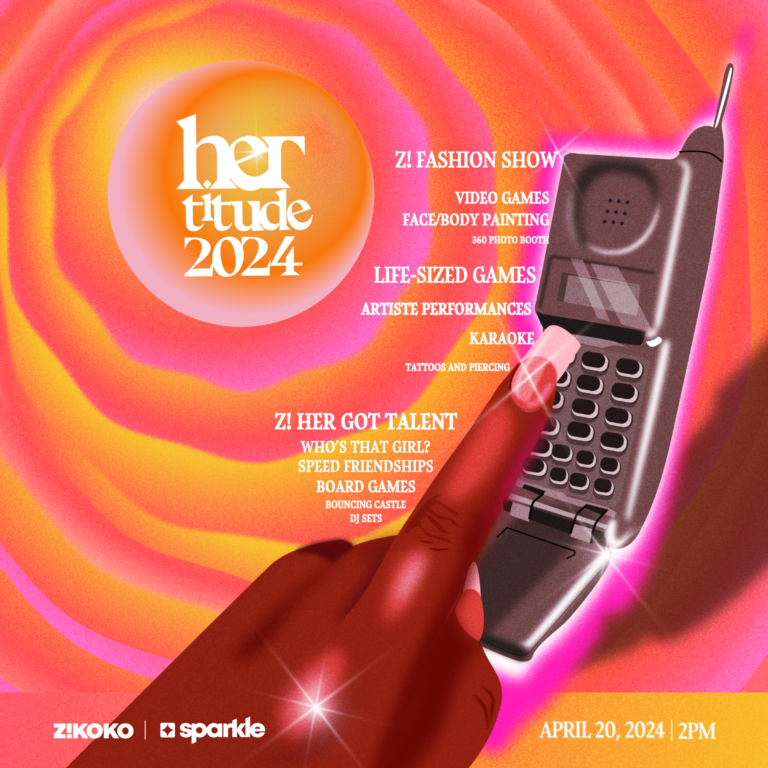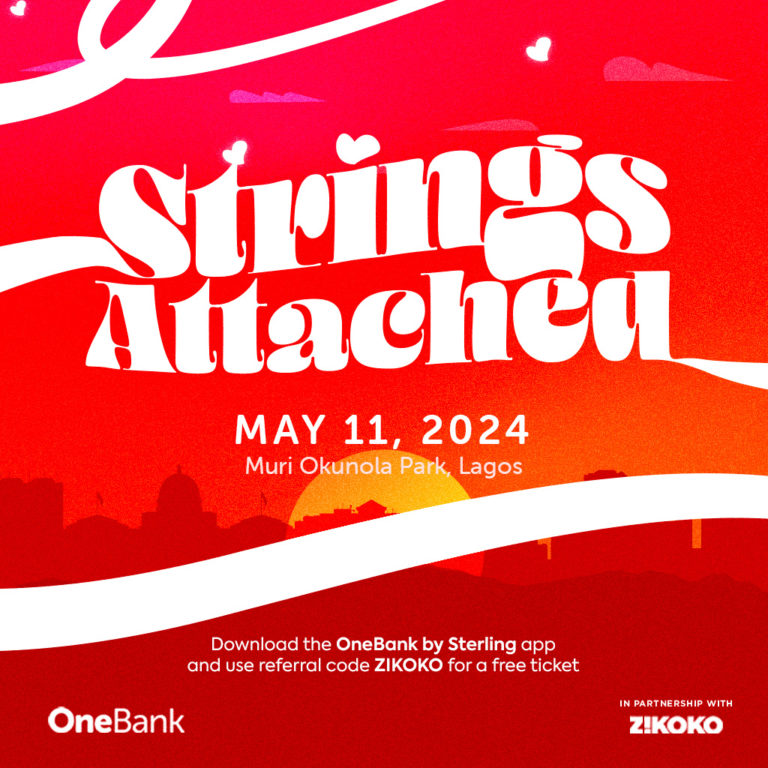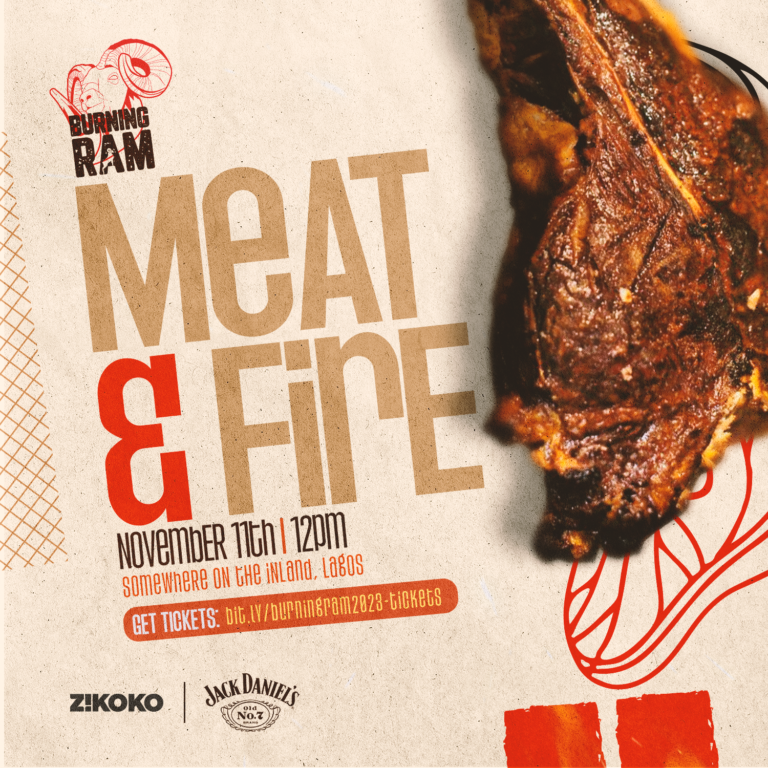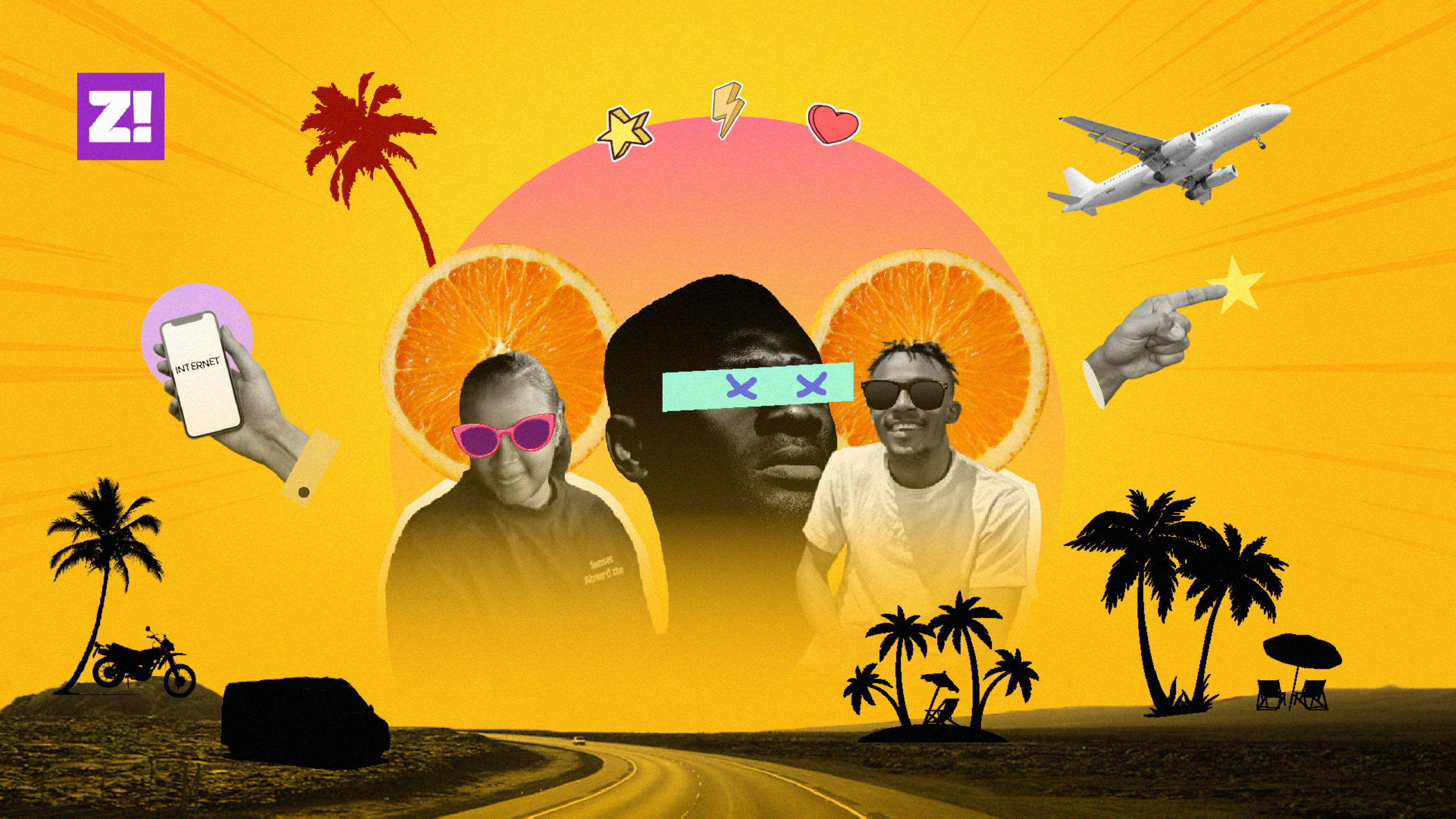For this week’s what she said, we talk to Uju Anya, a 44-year-old woman. She tells us about leaving Nigeria with her mum because of her abusive dad, discovering she is lesbian, not bisexual, and becoming an atheist.
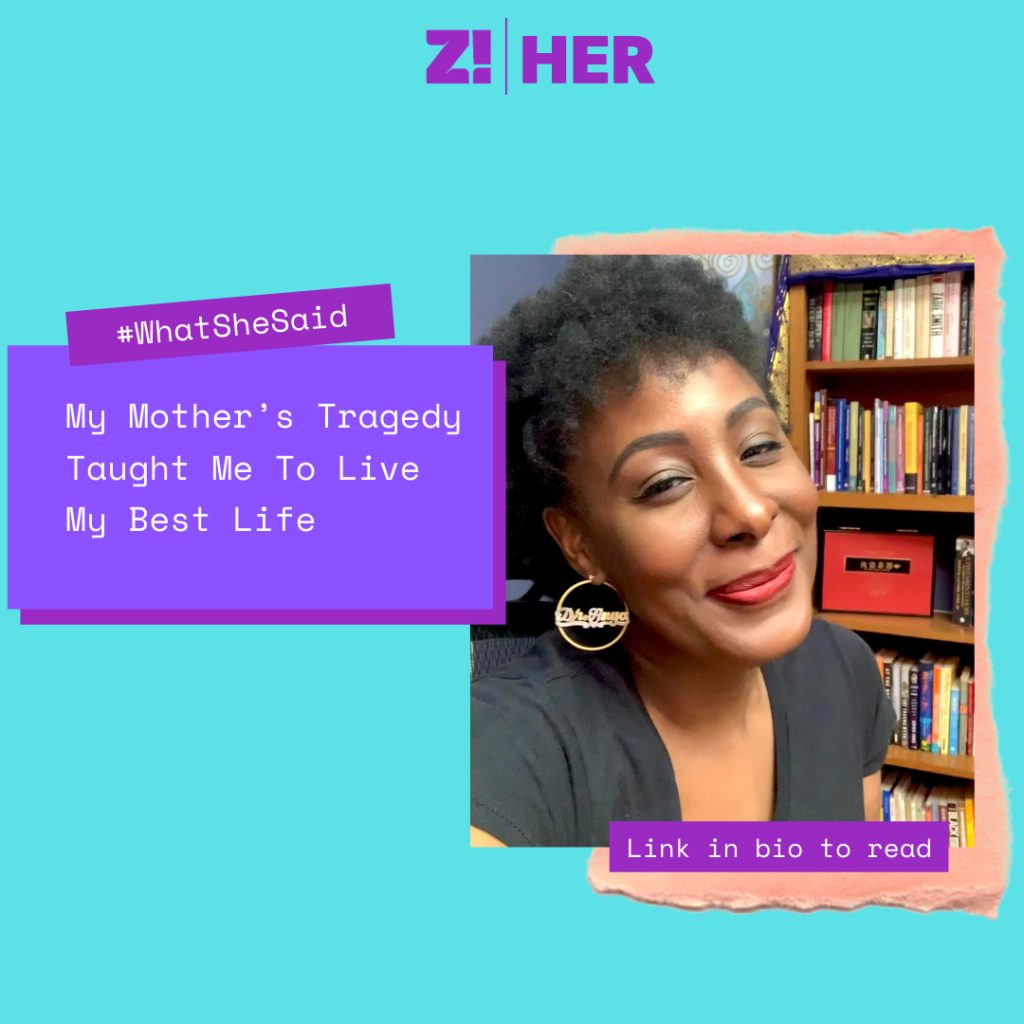
Let’s start from the beginning. Where did you grow up?
I was born in the city of Enugu back when it was Anambra state. My dad is Nigerian and Igbo. He was in law school in England when he met my mum, who was from Trinidad, Tobago. She was in nursing school doing midwifery. They got married in England and had my older sister, then moved to Nigeria in the early 60s to pretty much help build the republic. During much of the Biafran war, my dad left my mum with his family, while she had two children under 10 and was pregnant with the third, so he could go hang out with his mistress.
Wow. That’s rough.
My mum was taking care of her children and in-laws and running, escaping from bombs from village to village.
After the war, they built a solid life in Enugu, had two more kids — I was the last child. They had me 1976, and I lived in Nigeria for the first 10 years of my life.
What changed?
My parents’ marriage was chaotic. My dad was a philanderer, an absolute whoremonger. He had a bunch of women. One was more regular than the others. Eventually, he married and brought her into the house.
At first, my mum was not okay with him having these other women, but she turned a blind eye to it. However, when he married her and demanded that she live in the same house which they built together, she couldn’t take it. My mum plotted her escape for two years.
In 1986, she secretly took me and my brother, who was 13, to the United States. My older siblings were older than 18, so she didn’t take them. We all reunited later in the US when they came to live with us. I wrote a whole Twitter thread about it.
How did this move affect your relationship with your family?
In Nigeria, I was raised by my mother, an army of nannies, the house help, aunties, cousins, grandmothers, but not my father. My father was the first son amongst many sons. He was also the wealthiest one at the time. Picture this: a rich Igbo man with a chieftaincy title. He was traditional and conservative, always working or travelling, and when he was around, he was surrounded by staff or visitors or socialising with adult family members and too big and powerful a figure to bother with small children. Plus, he was not an affectionate man. So, I did not have a personal relationship with him in any meaningful way. If he had gone away, I wouldn’t have missed him — and I didn’t when we went away.
My mother and I were so close, I slept in her bed until I was seven or eight years old. I was her confidante, and she talked to me about everything. She didn’t try to protect me from the knowledge of the workings of grown-ups and grown-up relationships. It was inappropriate, the amount of adult information she told me. But I was also a very nosy and precocious child who had a lot of time alone in the house when my mum was working. I went through all her stuff, her papers, read personal letters.
Tell me about what happened after moving.
We moved to Montgomery County, Maryland, the DC metro area — and there, not Nigeria, is where I consider my home. I grew up there, went to high school there, then I went to university in the New England region of the United States. So Hanover, New Hampshire for undergrad at Dartmouth College and then I lived in Providence, Rhode Island, where I did a master’s at Brown University, Andover, Massachusetts, right outside Boston where I taught at Phillips Academy.
Wait — how many cities have you lived in?
Let’s see. There was the DC metro area, I moved to Brazil for a few years. When my mum got sick, I had to come back. Then I got married, moved with my now ex-husband to Los Angeles so he could find steady work as a digital artist and animator in film and television. After 12 years, with two kids, I moved to Pennsylvania for work. I’ve also lived in Venezuela and Spain.
How did you meet your ex-husband?
When I was an adolescent, I was attracted to both boys and girls. I thought I was bi for pretty much my adult life. I dated women in college, but only when I was away in school. On holiday, at my mother’s house, whenever I went out with a woman who couldn’t pass for a “friend” because she was butch — and those women are my favourite — I would meet them down the street or at the place we were going. I brought girlfriends to my house but never said who they really were. There was no way I could openly admit that I was interested in and dating women at home. Home was not only extremely Nigerian and West Indian, it was also religious. I could only openly live as queer when I lived by myself in college, and afterwards when I was living abroad or renting my own place.
Then I fell passionately in love with the man who became my husband. I consider him the love of my life. At 28, there was the pressure to get married, and for two years before meeting him, I was living with a woman in Brazil. Rumours were flying among my family members that something “funny” was going on with me. So there was pressure, but I didn’t get married under duress. I was relieved to find a man I loved and sexually desired because previously I had a lot of trouble reciprocating men’s affection for me. So, I married actively and willingly and passionately for a good long time.
He knew I loved women, and during the marriage, I was openly bisexual. Eventually, towards the end of our marriage, I realised I was not bisexual; I was a lesbian. And that was ultimately what broke us up. I couldn’t continue living with a man knowing I exclusively wanted women.
Did your mum eventually find out about your sexuality?
My mum never knew I was a lesbian or even bisexual. At least, I never discussed it with her. If she suspected or heard family rumours, she never told me. She died before I divorced, so I never had any conversation with her about why my marriage ended.
Her death was one of the things that caused me to understand how short life was, that stress and heartache could cause chronic and ultimately fatal illness, and how important it was to find happiness and fulfilment while I was still here to enjoy it.
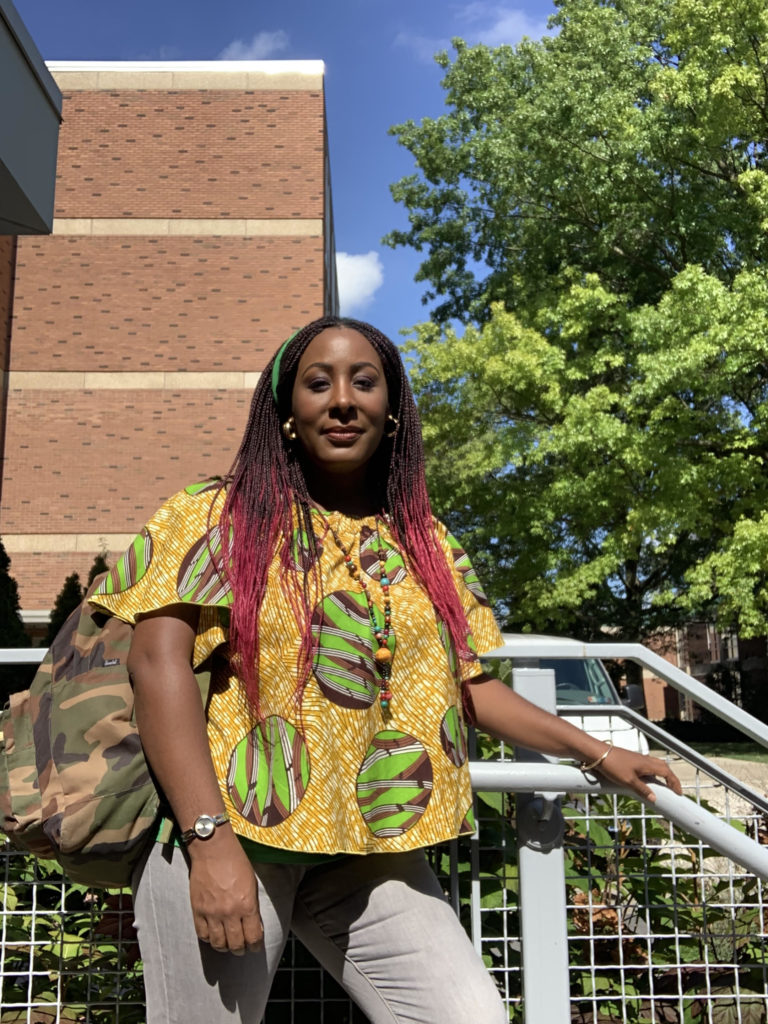
Were you still Catholic at this point?
No. I stopped being catholic long before. For context, my mum was such a devout Catholic, she almost became a nun. In Nigeria, she gave it up for her husband’s religion — Anglicanism. When we came to America, she baptised us immediately. I and my brother attended Catholic schools up until university.
From the beginning, I was one of the troublesome kids that had questions and didn’t know I wasn’t supposed to ask them. Like, none of this shit makes sense. Can somebody explain all this to me?
I would get in trouble for that, but after all the yelling and punishment for asking questions, ain’t nobody still answered my fucking questions.
Eventually, I abandoned Catholicism because it was anti-woman and patriarchal. I started reading feminists back when I was a teenager and getting ideas that just didn’t match with Catholicism. But I wasn’t ready to abandon religion and God. So after I left Catholicism, I experimented with traditional African religions in Brazil. It was funny because I was an Igbo person worshipping Ifa.
Why a traditional religion?
It seemed more realistic. The gods were more like intermediaries than gods. They had human attributes. They engaged with humanity, and women were leaders in these religious groups. Women had power and there were female gods and deities as well — God wasn’t just this one angry white man.
You read history, colonialism and imperialism. You read about feminism, and they still want you to worship these people. I wasn’t comfortable with that. So I did a little bit better during my African religion phase, but it still required me to hold competing ideas in my brain at the same time.
I couldn’t push aside my knowledge of biology, physics and logic for supernatural truth, dogma and hierarchies. Religion and a belief in the supernatural became more and more uncomfortable when it bumped up against what I understood to be reality and the way reality functions.
What was the tipping point for you?
My views on goodness changed. I was raised to believe that you needed to believe in God to be good or moral. But godly people were some of the biggest assholes I knew and so much of the torture and violence that I experienced or watched and read about other people experiencing came from believers BECAUSE of religious beliefs.
My ex-husband was an atheist who was also raised in an atheist household and society. He was the most moral person I had had any kind of close contact with. This was somebody who did not lie or raise his hand to me or to our children. The one time that I, in anger, attacked him physically, he held me. This six-foot-five 250 pounds man held me very, very closely and said, “No violence,” and put me down.
I had met atheists in school, had professors who were atheists, but they never swayed my religious beliefs; I didn’t have daily intimacy with them. When I finally had a personal relationship living, talking, learning, and experiencing things, experiencing values and ideals in live-action with somebody who was not a believer, I saw with my own eyes that one could be good without God. So, I let God go.
How did your family take your bold ideas and beliefs?
Before Twitter, I was a big mouth on Facebook, which was the family village square. Facebook was difficult for my family members, and whatever I said on Facebook caused problems for me. For example, every Nigerian knows that our houses are extremely violent and adults beat children in awful ways, and I would say, “Don’t do this. It is perfectly reasonable and possible to raise respectful, well behaved, and functioning children without beating them.” And sparks would fly. My family members would say, “We heard you were calling your family abusive on Facebook.”
There was always this idea that I was washing dirty laundry, disgracing our family and giving us all a bad name. Whenever I talked about gay anything, not even about myself, family members complained I was shaming them. I had a psychotic uncle that would use this to argue for my dad’s inheritance. He would say my father’s line was cursed with homosexuality and witchcraft, and that’s why we don’t deserve our inheritance.
When I came out as a lesbian, with pictures of myself hugging and kissing my girlfriend at the time, I had to deal with phone calls from three different continents.
In the end, I deleted Facebook. I mean, I left Facebook for another reason. I didn’t wanna continue on that site with how it was functioning to undermine democracy in the US and around the world, like genocides and disinformation campaigns being organised there. But when you leave Facebook, you leave a lot of family and friends you only connect with on there. So, leaving Facebook meant I also left family members, my village people, and other monitoring spirits who caused me a lot of problems because they disapproved of my views and my life.
Is there anything else you’d like to share?
I want to tell women that you deserve joy, you deserve joy and, most importantly, you deserve orgasms. I have slept with enough women to know that a natural, normal achievable condition for women is easily 10-15 orgasms per sexual session, and women need to know this. And this isn’t just a lesbian thing. You can do it with men, by yourself when masturbating, whenever and however you get down. You don’t have to accept bad sex. It’s all about fucking people who care about your orgasms, and also, learning how to take your orgasms for yourself during sex, not waiting for people to give it to you.
For more stories like this, check out our #WhatSheSaid and for more women like content, click here

